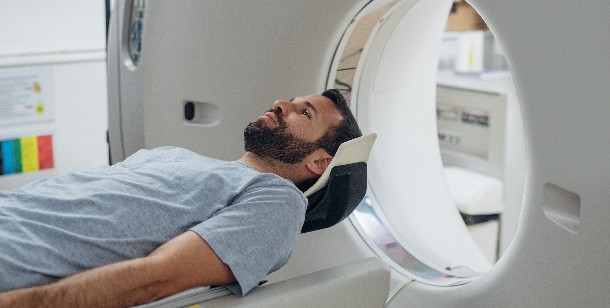Headaches are one of the most common ailments that people experience. And although they can cause immense pain, inconvenience, and irritability for the sufferer, a headache is usually nothing to worry about. But how much pain is too much, and when should you be concerned about recurring headaches? Keep reading to find out when to see a doctor for a headache.

Types of Headaches
If you are concerned about your head pain, it’s important to discern what kind of headache you are suffering from; not only can this help you treat the headache, but it may also reveal any headache triggers or red flags. The most common types of headaches are as follows:
Cluster headaches
- Cluster headaches tend to occur for prolonged periods of time, with bouts of frequent attacks. These attacks, also known as cluster periods, can last from weeks to months. Pain is usually localized behind our around one eye. For more details on how long cluster headaches last, visit our blog for in-depth information.
Tension headache
- Tension headaches are the most common, and typically the least debilitating, kind of headache. Sufferers are known to experience dull, aching pain and a sensation of tightness across the forehead on or around the back and sides of the head.
Migraine
- Migraines cause severe throbbing or pulsing pain, usually localized to one side of the head. Other migraine symptoms include nausea, vomiting, and extreme sensitivity to light and sound. Many migraine sufferers report a warning symptom or aura before the headache occurs. This may include spotted vision, tingling, exacerbated exhaustion, or difficulty speaking. Migraines occur more frequently in women and tend to present from early childhood. For more severe cases, over-the-counter medication is often ineffective. To understand the difference between a headache and a migraine, explore our detailed blog.
Sinus headache
- Sinus headaches occur when cavities around the nasal passages become inflamed. Common symptoms are pressure around the eyes, nose, cheeks, and forehead. They are most commonly caused by a cold or seasonal allergies.

Potential Headache Causes
There are lots of factors that may bring on a headache, ranging from external factors like stress, eye strain, and diet to internal factors such as hormone fluctuation and nerve damage. Many people report that, when they get less sleep or find themselves staring at the computer too long, a headache is not far behind. For many women, hormone fluctuations that correspond with their menstrual cycle are the culprit. Check out this list of common headache causes:
- Poor diet
- Fasting
- Hypoglycaemia
- Stress
- Lack of sleep
- Dehydration
- Eye Infection/ blue-light eye damage
- Hormones
- Poor posture
The aforementioned causes are relatively minor and tend to be easily corrected. However, a headache can be indicative of a more serious issue that needs medical care:
- Brain tumor
- Sinus infection
- Brain aneurysm
- Carbon monoxide poisoning
- Concussion
- Dental issues
- Ear infection
- High blood pressure
- Meningitis
- Anxiety
- Stroke

How Long Should a Headache Last Before Deciding on When to See a Doctor for Headache?
Before you run to a neurologist, it’s important to note that even a minor, non-emergent headache can last for an extended period of time. However, if you have been suffering with the same symptoms for several days, weeks, or months with no momentary relief, it may be time to see a doctor.

How do You Know if a Headache is Serious?
Headaches are a part of life, but there are a few tell-tale signs to look out for if you suspect that something isn’t right. If you are experiencing an unprecedented amount of pain from a headache, have a fever, behavioral changes, vision changes, or trouble speaking, seek emergency attention immediately. These symptoms could indicate a serious condition like a stroke, brain aneurysm, or severe concussion.

Which Doctor Should I Consult for a Headache?
If you suspect that you are experiencing a life-threatening condition, call 911 or go directly to an emergency room near you. For concerns like severe headaches, visit our ER for headaches, where specialized care is available to address your symptoms. If you’re unsure when to see a doctor for a headache but believe something is wrong without being in immediate danger, make an appointment with your primary care physician or pediatrician.
They may refer you to a specialist equipped to diagnose and treat your symptoms. Should medical imaging be required for an accurate diagnosis, such as a CT scan or an X-ray, visiting an emergency room like Village Emergency Center ensures you have access to the necessary equipment and expertise to evaluate your condition promptly.
Visit Village Emergency Centers
You don’t have to live with painful, chronic, or abnormal headaches. If you think your pain goes beyond what can be treated at home with over-the-counter medication, visit Village Emergency Center near you for expert medical advice! Whether you’re in Jersey Village, League City, or nearby areas, our emergency and neurological experts are fully prepared to assist with all your urgent medical needs. If you want to learn more about what might be causing your headaches or need guidance on when to see a doctor, contact Village Emergency Center today!
